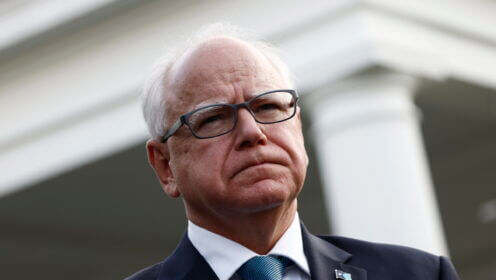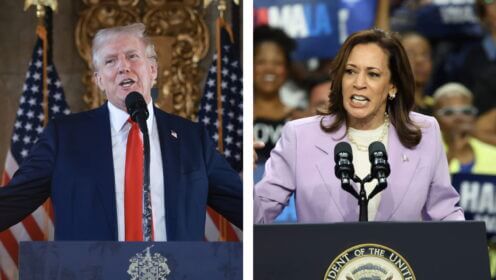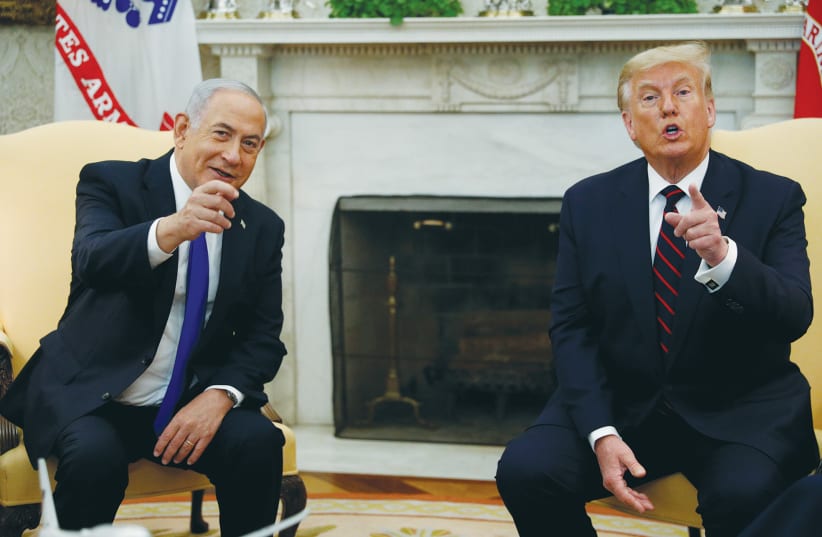by Greg Piper
Second time since Harris became presumptive Democratic nominee that Google has blamed technical bugs for search results that favor her. California false advertising law, Google settlement on "deceptive prompts" could cause legal problems.
Twenty-six years ago, a new search engine company received its first investment, and rapper Will Smith taught Americans to get jiggy with it.
Facing a potential breakup following a devastating antitrust ruling, Google is getting glitchy with it to discount its search engine's alleged preferences in the 2024 presidential race.
Google has blamed technical bugs for results that favored Vice President Kamala Harris since she became the presumptive Democratic nominee: omitting the attempted assassination of her GOP opponent and former President Donald Trump from "autocomplete" suggestions. It also let the Harris campaign falsely attribute her narratives to media organizations with search ads in which she replaced news organizations’ headlines with her own.
The House Oversight Committee opened a formal probe of the autocomplete omission as well as similar actions by Facebook's AI chatbot Wednesday. A spokesperson told Just the News the committee also "intends to press Google for details about the Harris campaign reportedly manipulating Google’s ad features and news headlines.”
"Big Tech has leveraged their businesses to influence public opinion and have engaged in an alarming pattern of speech suppression and censorship," the spokesperson said.
The left-leaning New Republic expressed puzzlement at the Harris campaign's bait and switch, noting "plenty of positive coverage of Harris since President Joe Biden withdrew from the race and endorsed her to replace him."
Kamala Harris literally has every news media outlet plus Google, Facebook and Instagram in her corner helping her.
— Wall Street Silver (@WallStreetSilv) August 14, 2024
And she is upset that Trump has Elon on his team. 🤡 pic.twitter.com/wxQCvwOpat
California law and a 2023 settlement with the Golden State could even spell legal trouble for the Harris headline hoodwink, which may also feed into renewed gripes from publishers about Google profiting off their content without a license, the subject of legal and legislative pushes.
A very broad Business and Professions Code punishes advertising "which is known, or which by the exercise of reasonable care should be known, to be untrue or misleading," with up to six months in jail and a $250,000 fine. It applies to "any newspaper or other publication, or any advertising device … or in any other manner or means whatever, including over the Internet."
Google paid California $93 million a year ago to resolve an investigation over its representations about "Location History," which the company called "outdated product policies that we changed years ago."
Attorney General Rob Bonta — who succeeded Harris in office — alleged that Google showed users "deceptive prompts" from 2014 to 2018 to mislead them to enable geolocation data collection while telling them it was turned off by default, and that it gathered location data in other ways, such as the default-on "Web & App Activity."
The Silicon Valley behemoth ponied up $1 billion for partnerships with international publishers four years ago, giving them opportunities for "deeper storytelling and more context" in publisher-curated Google News panels.
When clicked, the ad links to a normal news article – not an explicit endorsement. pic.twitter.com/518Ygzxrqb
— AllSides (@AllSidesNow) August 13, 2024
Australia changed its competition law a year later to force Google and others to negotiate licensing deals with media organizations, and Google agreed to pay Canadian outlets $74 million a year, indexed to inflation, shortly before a similar law took effect last year.
But Google started "removing links to California news websites" in April in response to legislation that would force it to pay in-state publishers for linking to their news, while emphasizing the boycott was a "short-term test for a small percentage of California users."
Google threatened to cut off its grants to nonprofit newsrooms nationwide following another California bill that would tax "digital ad transactions," Axios reported in May. Educational publishers sued Google in June for running search ads for pirated ebooks while "restricting ads for licensed e-books," Reuters reported.
The Harris campaign ads use media organizations' names and icons and link to their articles about her, but rewrite the headlines and descriptions with her own talking points on subjects including abortion and healthcare.
They are mixed in with so-called organic search results but each has a three-line header: "Sponsored," "Paid for by Harris for President" and "Presidential Campaign."
The ads can be seen in the Google Ad Transparency Center, invoking well-known outlets including Reuters, NPR, Associated Press, Time, USA Today and U.K.'s Independent and Guardian, though oddly some ads list Reuters but use the AP's icon.
"VP Harris = Repro Leader" for The Guardian is one of the more loaded ads. An ad that conflates Reuters with AP then quotes an NBC News headline, "The U.S. is winning the inflation fight."
Media bias rating service AllSides took credit for discovering the ads and issued an open letter calling for Harris to stop misleading voters and making media outlets look biased toward her, and for Google to block such ads, whose format "lacks sufficient context and is ripe for abuse."
Axios compiled the ads, noting the Trump campaign did not run such ads. It reported that several news brands were caught unawares and that The Guardian said Google needs its permission to use its brand.
"The campaign has complied with all of Google's rules, although a technical glitch in Google's Ad Library made it appear as though some ads lacked the necessary disclosures Google requires when they ran," Axios reported, saying Google confirmed the glitch and is investigating.
"Election advertisers are required to complete an identity verification process and we prominently display in-ad disclosures that clearly show people who paid for the ad," Google told Axios. It has not responded to Just the News queries.
Trade association NetChoice, which counts Google and Facebook parent Meta as members and convinced the Supreme Court to continue blocking Texas and Florida social media neutrality laws, told Just the News "our expert on this issue is out of the office this week."
Eric Goldman, associate dean for research at Santa Clara University's law school and co-director of its High Tech Law Institute, told Just the News he was unavailable Wednesday.
An expert in search engine optimization, Goldman expressed skepticism a year ago that the near-absence of Republican presidential candidates' websites in generic Google searches for the party's 2024 bench could mean Google was "hacking these results to steer the election."
The 64-year-old Consumer Federation of California, whose legislative issues include "strengthening campaign disclosure requirements for political contributions and advertisements," didn't respond to queries.
Greg Piper
Source: https://justthenews.com/politics-policy/elections/harris-headline-hoax-under-house-gop-investigation-news-publishers









